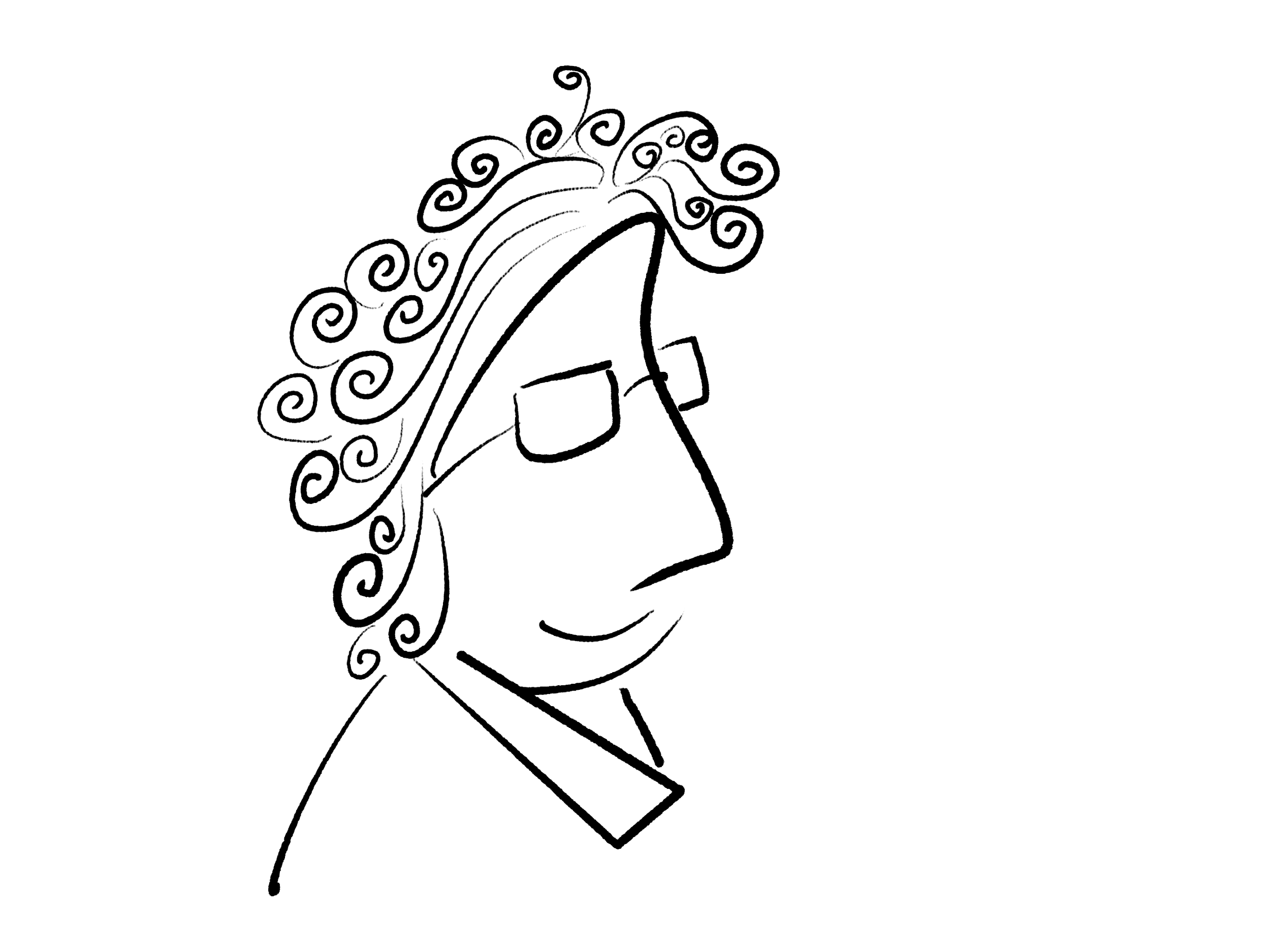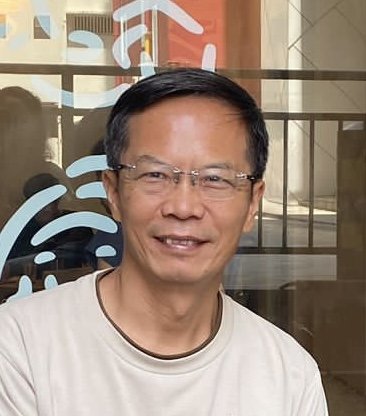My Welsh Friend Lloyd | 我的威尔士哥们儿罗伊德
Written by: Sun Lin | 孙林
Translated by: Li Shu
Editor’s Note:
This article is excerpted from Haha! Britain — a charitable bilingual publication co-produced by The Mothers’ Bridge of Love (MBL) and River Cam Breeze. The book is a lively collaboration between 42 Chinese authors living in the UK and 36 university-based volunteer translators. With wit and warmth, the stories capture the everyday realities of Chinese communities in Britain, offering an honest look at the cultural clashes, humour, and adaptation that arise in the space between Chinese and British ways of life. Haha! Britain has been warmly endorsed by several well-known figures in UK-China relations, including Stephen Perry (former Chairman of the 48 Group Club), Luise Schäfer OBE (former British diplomat and Chamber of Commerce chair), Professor Hugo De Burgh (former BBC editor and academic), and British scholar Martin Jacques. The book’s title was handwritten by celebrated British-Chinese artist Qu Leilei, its cover illustrated by bestselling Chinese author and poet Feng Tang, and the postscript contributed by Xue Mo, a prominent voice in contemporary Chinese literature.
Illustrated by Tian Tian
I first met Lloyd in 1988 in Portsmouth, an island city in southern England. Thirty-five years passed in the blink of an eye.
At that time, we were under the same supervisor and funded by the same company to do research projects, the results of which were written into our dissertation. We lived in Southsea, worked in Havant, and went to the University of Portsmouth now and then to have a meeting with our supervisor or attend classes. I remember on my first day at work, Lloyd invited me to have a drink in the evening. From then on, we often went out for drinks, sometimes with our new friends. I became familiar with the names of some drinks I typically ordered, even though the bartender would occasionally serve the wrong one due to my mispronunciation. I had been a non-drinker, but after frequenting pubs, I got accustomed to the noise. My friends and I always went to a couple of pubs in one night where drinks were paid in turn, and I was able to finish a pint of beer in each of the pubs. Pub hopping at night made it easy to see the other side of British people: gentlemen would behave like hooligans, peeing on streets and whistling at girls passing by.
We commuted by regional rail for work and classes when we first arrived in Portsmouth. Later we bought cars and often hung out on weekends. What I remember most vividly were the warships in Portsmouth, cycling on the Isle of Wight, Brighton Beach, airshows, open-air music festivals and various museums. If a museum had a steam locomotive, we would spend most of the day trying to figure out how it worked.
Lloyd’s Chinese name was given by my father. “Lloyd”, according to him, means “grey hair” in Welsh. Neither of us had girlfriends when we first met, so we would invite girls to go out with us at every opportunity. A Japanese girl and her friend lived near us, and they would occasionally join us. One time, she asked why the staff ignored her when she would like to order another drink or dessert at a restaurant. Our British friend asked her to repeat their conversation. She said the staff member said, “Would you like to have some dessert?”, and she answered, “Yes, thank you.” My friend said it was probably because of her soft voice that the staff only heard “Thank you” which usually went together with “No”. Since then, she started to say “Yes, please” instead, and the staff waited for her to order as expected.
A year later, we were both unhappy with our flatmates and decided to share a flat. As Lloyd spoke with a heavy accent, the estate agent once joked with us, “I can’t understand either one of you. How do you two understand each other?” But we did! And we talked about everything under the sun. I still remember our discussions on idioms with similar meanings in Chinese and English, such as “teach grandma to suck eggs” and “ashtray on a motorbike”.
Our parents soon got to know each other. I spent Christmas that year with Lloyd at his parents’ home in southwest Wales, one of the warmest times of my life in the UK. His mother took great care of me, making me feel the warmth of family in a foreign country. At that time, we walked their dog together and visited the church where Lloyd sang in the choir as a child, though he never went to church in Portsmouth. In the afternoons, we accompanied his father to the pub, and his mother told me with a smile that it was her husband’s happiest moment. According to Lloyd, he was taken by his father to taste beer when he was still in primary school. Despite the distance, the life here had much in common with that in the countryside and small town where I grew up. Regulars of the pub had known each other for decades, some of whom had never left Wales. Many of Lloyd’s friends stayed where they grew up and now had children of their own. In the pub, people would occasionally come up to me, telling me that it was their first time greeting an Asian. A few years later, Lloyd got a job abroad. I made a special trip to visit his parents when I came to the UK. I noticed that the kitten embroidered with Xiang Embroidery (or Hunan Embroidery, one of the traditional folk arts of China) that I had given them during my first visit still hung prominently in their living room. I accompanied his father to the pub again, where people were eagerly discussing the new South Korean factory in Wales, but were confused about Chinese, South Korean, Japanese and other Asian brands.
On another occasion, Lloyd invited my parents to live in his room when they travelled to the UK in 1990, while he stayed with his friend for a month. Three decades on, after leaving the UK, I worked and lived in various cities and countries, keeping in touch with Lloyd. When I heard the news of his mother’s passing, I was brought to tears.
I moved to Singapore in 1991, while Lloyd found a job in Germany. Two years later, we reunited in Heidelberg and went to a pub to discuss the cocktails Leibniz might have drunk. In 1993, we both worked in Heidelberg. In the mid-90s when Lloyd returned to the UK to look for a job, I sent him a job advertisement from a Singaporean research institute that recruited employees in Europe, and he got the job on his first try. In the following years, our families travelled together in Singapore, Malaysia and the Philippines. Lloyd and his wife took the opportunity to visit India, Indonesia, China, Thailand and Cambodia, among other countries. Once, they joined a tour group to Malaysia, and it just so happened that my younger brother was planning to travel there as well, so they travelled together. Lloyd later joined a multinational software company and was sent to France. Unfortunately, my child was too young at the time for us to all explore the “Route des Vins” together.
We always sent each other our best wishes at Christmas, during Spring Festival, and every year on our birthdays, even if we worked and lived in different cities. In 2010, after my children started school, my family travelled to the UK and went to Wales to visit Lloyd and his wife. Our friendship has endured many years, many changes and many turns. I feel lucky to have Lloyd as a friend for life.
About the author
Sun Lin, a native of Hunan province, has worked in various institutions, including research institutes, multinational companies, startups, government and universities. He enjoys travelling and writing in his spare time.
初识罗伊德是在 1988 年。我和罗伊德在英国南部海滨城市朴茨茅斯相识,一晃 35 年过去了。
那时我们在同一导师门下由同一公司资助,为其做研究项目并将项目成果写成学位论文。我们住南海城(Southsea),在哈文特(Havant)上班,偶尔去见导师或上课才到朴茨茅斯大学。记得第一天上班他约我晚上喝一杯。此后我们常去喝,有时叫上新朋友。我渐渐熟悉了一些常喝的酒的叫法,不过偶尔因为发音不准或重音不对酒保还会给错酒。我原来不喝酒,去酒吧的次数多了,也就习惯了酒吧的嘈杂,一晚上转几个酒吧,每人买一轮,每轮我也能喝完一品脱啤酒。晚上转酒吧,容易看到英国人的另一面。酒过几轮后,白天道貌岸然的绅士(gentleman)表现得竟和小混混(hooligan)类似,对着路过的女孩子吹口哨起哄,站在街边撒尿。
刚到朴茨茅斯的时候,我们坐区间火车上班上课。后来买了车,我们周末就经常一起出去玩。印象深刻的有朴茨茅斯的军舰、怀特岛的骑行、布莱顿海滩、航空表演、露天音乐节,以及大大小小的博物馆。如果馆藏有机械装置蒸汽机车,朋友们会花上大半天试图弄明白其工作原理。
罗伊德的中文名是他爸爸起的,原文是 Lloyd,据他介绍在威尔士语里意为“灰色的毛发”。头几年我们都没有女朋友,有机会就邀请女孩子跟我们一起玩。我租住的房子楼下住着一个日本女孩和她朋友,她们偶尔会参加我们的活动。一次她问,为什么她想多喝一杯或者在餐馆点甜品,服务人员走开不理?英国朋友要她复述对话。服务员问:“Would you like to have some dessert?(你要甜品吗?)”她答:“Yes, thank you.(是,谢谢。)”朋友觉得那是因为她声音小,而人家只听到通常搭配“No, Thank you.”的“Thank you.”而假定她不要。后来她改成“Yes, please(. 是的,劳驾您了。)”果真服务人员等着她点,不再走开。
一年后,我们都对自己合租的房客不满,决定合租。罗伊德说话有浓重的口音,房屋中介对我们开玩笑:“I do not understand either of you, how could you understand each other?(你俩的话我都 听不懂,你们互相怎么听得懂的呢?)”我们在一起常常天南海北胡侃。我至今还记得当时探讨中文英语里意思相近的成语,譬如, “班门弄斧(teach grandma to suck eggs)”,“画蛇添足(ashtray on a motorbike)”等。
后来,我们的父母也彼此认识了。那年圣诞节,我是和他一起到威尔士西南部他父母家过的。那是一段我在英国生活中最为温馨的时光。他的妈妈性格爽朗,对我很关心,嘘问暖,让我在异乡感受到了亲人般的温暖。在他父母家我们一起遛狗,去他小时候参加唱诗班(choir)的教堂——虽然在朴茨茅斯罗伊德从来不去教堂。下午我们陪他父亲去酒吧,他妈妈笑着告诉我这是他老公最幸福的时刻。据罗伊德说他还在小学时,就由爸爸带着在这间酒吧尝试喝酒。距离虽远,这里的社会生活和我成长的乡下及小镇上却有着很多共通之处。乡间酒吧的常客都相识了几十年,有些一辈子没离开过威尔士。罗伊德那些没离开家乡的朋友很多人的孩子都打酱油了。在酒吧不时有人过来跟我说,那是他们第一次和亚洲人打招呼。几年后罗伊德在国外工作,我到英国时专程去威尔士看望他父母。我第一次去时送的湘绣小猫仍挂在客厅显眼处。我陪他父亲去酒吧,在那里大家热切地谈论着韩国在威尔士新设立的工厂,但都无法区分中国、韩国和日本以及亚洲的品牌。1990 年我父母到访英国时,罗伊德把他的房间让给我父母,自己去找朋友借住了一个月。一晃三十多年过去了,我离开英国去了很多地方生活工作,我和罗伊德断断续续地保持着联系。当听到他妈妈去世的消息,我情不自禁地流下眼泪。
1991 年,我到了新加坡,而罗伊德找到一份在德国的工作。两年后我们在海德堡重逢,一起到酒吧探讨莱布尼兹喝过的鸡尾酒。1993 年,罗伊德和我都在海德堡工作。90 年代中期,罗伊德回英国找工作时,我给他寄了一家新加坡研究院在欧洲招人的广告,他一试即中。以后几年我们两家一起在新加坡、马来西亚、菲律宾游玩,他们夫妇更是趁机造访印度、印尼、中国、泰国、柬埔寨等等。有一次他们参加旅行团去马来西亚,刚好我弟弟也想去,他们便把我弟弟带上一起出行。后来罗伊德加入一家跨国软件公司,派往法国,可惜那几年我们的孩子太小,错过了和他同游法国葡萄园海岸的乐趣。
我们不在同一座城市时,每到圣诞、春节和生日时,总会互相祝福,交换别后生活情形。2010 年,我的孩子都读书后,全家去英国旅游,顺道去威尔士看望罗伊德夫妇。
作者介绍
孙林,湖南人。曾就职于研究机构、跨国公司、起步公司、政府、高校。平时喜旅游,爱码字。
Both the Chinese and English editions of Haha! Britain can be purchased at the following platforms:
· BOOK FAN


